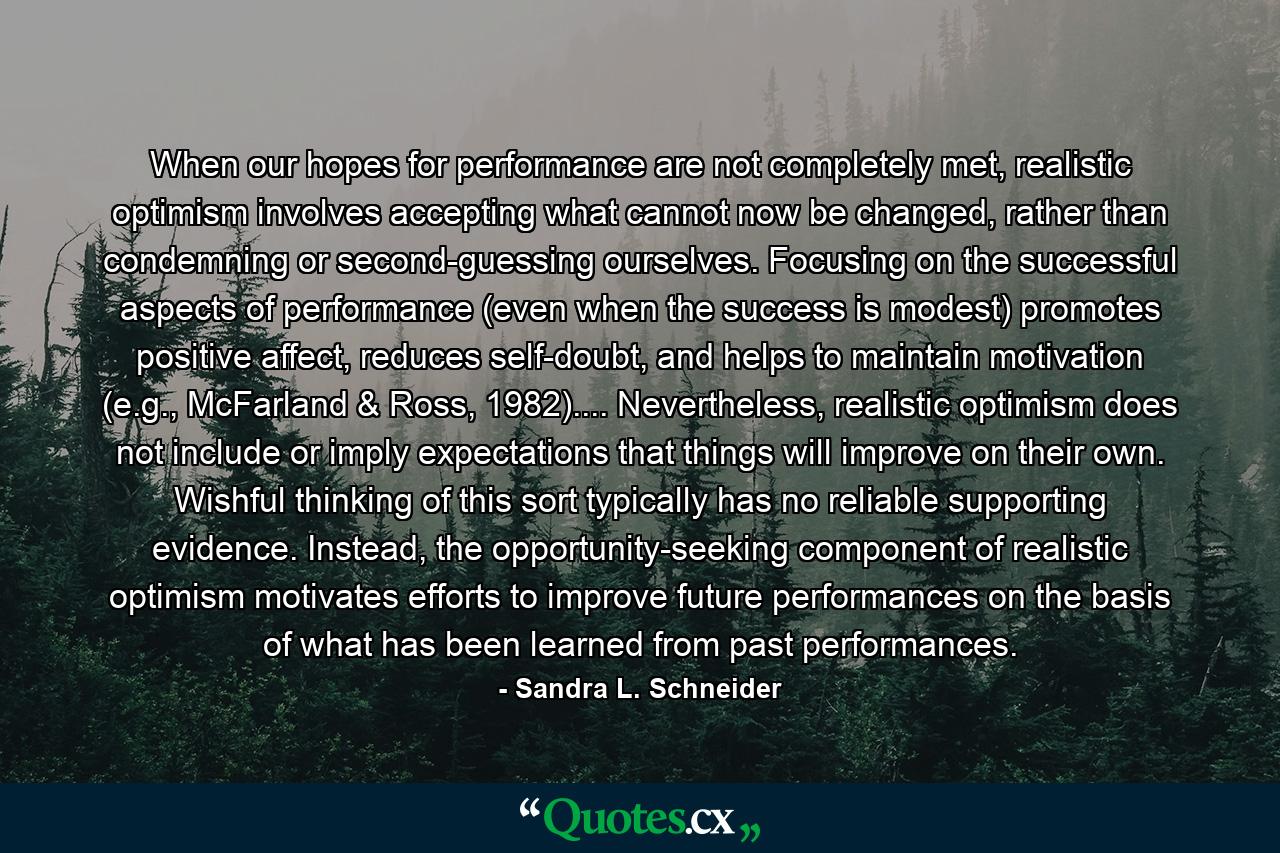When our hopes for performance are not completely met, realistic optimism involves accepting what cannot now be changed, rather than condemning or second-guessing ourselves. Focusing on the successful aspects of performance (even when the success is modest) promotes positive affect, reduces self-doubt, and helps to maintain motivation (e.g., McFarland & Ross, 1982)…. Nevertheless, realistic optimism does not include or imply expectations that things will improve on their own. Wishful thinking of this sort typically has no reliable supporting evidence. Instead, the opportunity-seeking component of realistic optimism motivates efforts to improve future performances on the basis of what has been learned from past performances.
